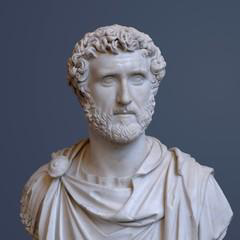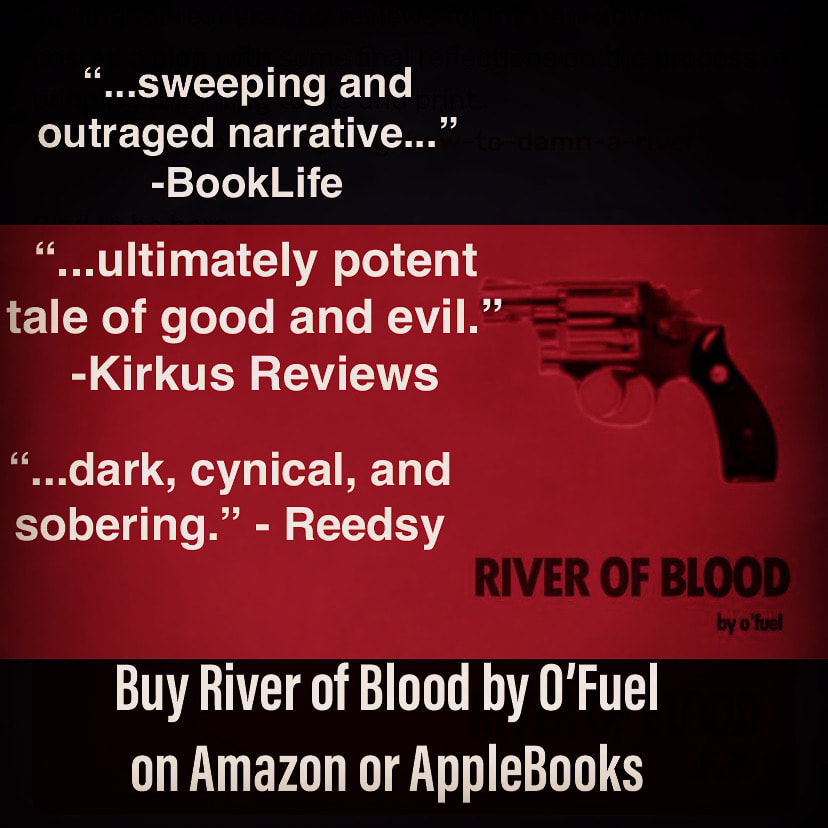|
The COVID caught me. I’ll avoid all the political land mines and tangents this subject has made nearly impossible for the rest of the planet to ignore. Those discussions are boring and for the most part irrelevant, in my opinion. My focus is something that at the outset seems insignificant in light of the other possible consequences of the virus but the longer I live with the “thing” the more metaphysical this particular symptom has grown. It was subtle. I had already traversed the extremes of the illness. The sweats, the chills, the striking, straight line pains across my back in the night, the anchor of fatigue. All that had already run its course. A cocktail of wonderful steroids and unnoticeably brilliant antibiotics swimming in my system, I was cooking sausage for my kids for lunch, on this unexpected, not unwelcome, vacation from work, when my son said, “Mmmmm, I can smell my sausage.” I couldn’t. Not a hint of searing meat in my olfactory. I took a bite of buttered toast. Nothing. Alone, the soggy, warm texture elicited an “almost taste” but my imagination could only muscle so much. What I sensed wasn’t flavor. It was a lie. A benevolent attempt by my mind to comfort me in the loss. At the moment I’m writing this, I still lack my senses of smell and taste. I have just come in from mowing part of our lawn. And I should have a lingering whiff of hot, shorn green in my head but it’s not there. I know the smell. I have a solid memory of the odor. As a teenager, I mowed lawns for eight to ten hours a day. The scent and every variation of it is carved into my mind. It should be there now. It should be but all I have is a memory of it. Have I “lost” it? What does it mean to “lose” one’s sense of smell or taste—fully aware of how connected the two senses? If one loses a game, a sporting event, what does the word “loss” actually represent? You lost an opportunity to boast? A trophy? You lost some confidence in yourself as a participant? This seems like what has happened. In some context a loss in confidence means everything. Boxers tend to lose more after one loss than they can record wins after a single win. In the midst of a string of losses, a single win rarely boosts a fighter the way a failure can degrade a fighter’s confidence after an unbroken list of victories. Is it joy? Have you lost the joy of victory? Victory is as fleeting as a sunset. However when one loses in a specific event, that loss is permanent, isn’t it. In this specific moment nothing will ever be the same. The mental state of one’s opponent can never be recreated with exactitude, the weather, the temperature, the light, nothing could be precisely the same as it was when the initial loss occurred so there is no way to replay, redo. No way to ever win again. The loss is permanent. When people analyze sports at the professional or collegiate level they often invoke “stakes.” Are the stakes of a game really worthy of what “loss” means in the grand tapestry of life. For some, it is. A loss at a certain time could mean a life of mundanity over a life of privilege. A prestigious education over an obscure one. But for most people the loss of a game is equal to simple embarrassment. Embarrassment is overcome once the hot moment has passed. Loss is negligible. Loss and its relation to the stakes are obviously not unique to sports. The stakes are what we’re always concerned with when we speak about loss. What are the stakes of losing taste and smell? My wife also contracted COVID. She also lost (and regained) her taste and smell. She grew emotional over the loss, mainly in context with our young kids. She worried she might not smell the smoke of fire. She feared the loss of their scent when she laid with them at night. Any distance from their essence or limit to her ability to protect them raised the stakes far higher than I would have guessed. She has regained her olfactory and taste senses. At this time, she’s complained of parosmia—strange sweetness in water and other strange things. This is apparently a positive thing, a sign that the cells are rebuilding. Lost and found. Misplaced and regained. As I sip on the bubbles of this Pepsi, I wonder about my memory of the taste of it. I wonder and I worry. I’ve read about, heard about, listened to discussions about the “hot/cold empathy gap.” When you’re not actually in pain, you might feel faintly confident that you can handle “the pain.” I’ve lost at various times certain sensitivities to specific pains. When I worked in a freezer in my very early twenties, I lost a shade of sensitivity to the pain one feels when dry ice contacts the skin. I could hold dry ice in my naked palm for minutes. Was the absence of this initial pain a loss or a gain? It was at least an adjustment. I’ve been a welder for years now. I can hold my composure and keep a steady hand at the harshest sensation of molten metal that may have dropped through two layers of fire resistant denim to find my thigh. I can without a wince continue a weld as a ball of orange steel sits in the fold of my leather cover, heating the skin on my arm to a blister. Another adjustment? Another loss of sensation? Or another gain in resilience? Loss has an obvious irony attached to it. In loss we usually gain something either peripheral or even directly related to the event or thing we call lost. Loss is a strange word when you drill down hard enough, isn’t it? Do you ever really lose a “religion?” You still retain parts of the structure—substrate—of religion. I will admit that I trust science—I hold some faith in science. Have I not lost my religion at all but simply transferred the irrational—inherited—belief in magic to a different corner of my value scaffolding? Maybe. I can make better arguments for the reasonable assumption that science has a better answer to most questions than mysticism. But have I “lost” the thing that is most troubling about adherence to magic? It seems that even though I can proclaim my loss in adherence to a spirit world or divine driver, I cannot in actual truth say I have lost my “faith.” Then there is artistic loss. I’ve heard of “losing the muse.” A rather ridiculous callback to another ancient religious trope. I’ve experienced “writer’s block,” though I hate the phrase. I’ve read other writers as their voice changed, usually as they became more concerned with commercial success than artistic expression. I struggled as a songwriter to produce music. My main failure as a songwriter was to write music I wouldn’t later feel embarrassed to sing on stage. I may have after years of trying actually achieved that goal once. You can see why I stopped trying all together. No one wants to embarrass themselves night after night, three minutes at a stretch, in front of people who instantly sense something is terribly wrong with how you perceive yourself. I spent years actually trying to lose my metaphorical voice when I wrote music. I naively fought my natural tendencies as a songwriter all the while admiring those who had embraced their own styles. The obvious example is Jack White. Here is an artist who has never lost his voice. Decades of strenuous musical exploration has left us with a still ever recognizable Jack White. Jack White never appears embarrassed on stage. Loss is a spectrum of unimaginable scale. You can lose a game of checkers with a smile. In the days before technology made it almost impossible, I lost a phone on a bus in New York City and grumbled about it for hours, lamented the inconvenience for the rest of the trip. You can lose your composure and sink into a depression. You can lose an arm or a leg and spend the rest of your life wondering either what could have been or who you would have been if you hadn’t lost them. I’ve read surveys that say amputees suffer only a fraction of points on happiness scales when compared to folks who still retain all their appendages. There’s that weird irony again. We lose loved ones. Everyone loses loved ones. I have a somewhat traditionally stoic view of death within my circle. I rarely visit dying friends. I will talk with them but I would rather not see them. My memory serves me better to think of the ideas of people than some random vision of them. I actually shudder if the thought of losing one of my children ever crosses my mind and I quickly stamp any lingering. No thank you. Yet I do aspire to the ancients here. Marcus Aurelius and Epictetus. They could go at any time. Love them and embrace their fate with the same love you had for them when they lived. I aspire. But some loss is horrifying at the least. I just caught a whiff of the pungent hand soap we keep at the kitchen sink. I had to literally insert the spout into my nostril but it’s there, very deep, very distant. Perhaps my loss will soon be regained. And you and I can continue on without the having to suffer my ramblings... wouldn’t that be a loss?
0 Comments
|
Archives
April 2024

Chrysalis, a growing collection of very short fiction.

That Night Filled Mountain
episodes post daily. Paperback editions are available. My newest novel River of Blood is available on Amazon or Apple Books. Unless noted, all pics credited to Skitz O'Fuel.
|


 RSS Feed
RSS Feed